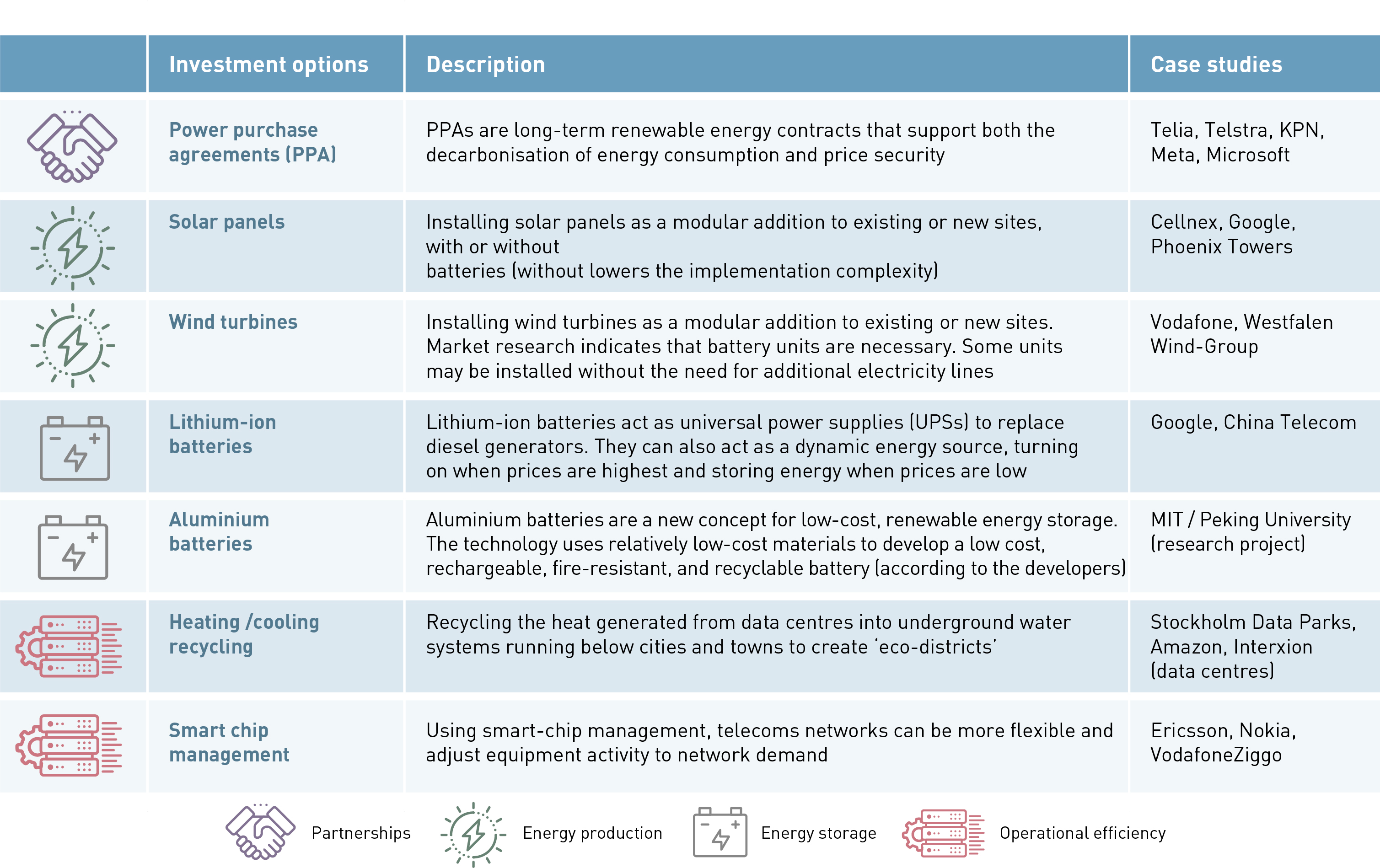TMT companies must adopt new energy strategies to adapt to a changing world
Energy in a changing world
Events in Ukraine and the related use of energy as a tool of war have brought into sharp focus the geopolitical and economic risks associated with a reliance on imported fossil fuels. Within this context, the IMF reported that global wholesale electricity and gas prices increased to a peak of fifteen times the prices prevailing in early 2021. This geopolitical and economic reality has pushed global policy leaders to examine opportunities to diversify their energy supply – especially domestically produced green energy solutions – with renewed zeal. For companies, they are experiencing increased energy opex and higher uncertainty in their forward planning. TMT players (like others) need to make decisions now that could have enduring consequences.
While many companies have been examining opportunities to sharpen their environmental credentials and secure energy supply for several years, the urgency imposed by current circumstances offers a catalysing opportunity: policy makers are reducing barriers to adoption for green energy; demand for green energy technologies is driving innovation and price reductions; and consumers (while under severe pressure regarding the cost of living and inflation partly caused by the same geopolitical forces) are more vocal and are choosing to support companies which align with their values.
In the short-term TMT players should identify opportunities to increase operational efficiencies and reduce consumption. In the medium term, increasing their resilience against volatility in energy prices will be key, and, in the long term, they should explore strategies to decouple their energy consumption from emissions.
Separately (but complementary to the above), companies must monitor their progress to provide the data which will enable them to then demonstrate their achievements.
Strategies to adapt to the changing world
Analysys Mason recommends four strategies that companies can adopt now to adapt to the changing world:
- operational efficiencies (short term)
- local energy storage (medium term)
- local energy production (medium term)
- partnerships (long term).
Figure 1: Examples of investment options [Source: Analysys Mason, 2023]

Operational efficiencies
In the short term, companies should focus on optimising operational efficiencies. For operators, Analysys Mason research indicates that the parallel deployment of multiple generations (mobile or fixed) significantly increases energy consumption. Operators could advance sunset dates for legacy systems to reduce their energy usage.
Other examples of operational efficiencies include optimisation of energy usage or performance through a “smart chip” management solution. This software enables a network unit to direct traffic to the most energy-efficient bands or deactivate network equipment during low-traffic hours.
Data centre operators can utilise liquid-cooled server technologies (as opposed to air cooling) to increase cooling efficiency and increase rack density without increasing the site size.
Local energy storage
Localised energy storage allows TMT players to store energy when prices are low and use it or sell it back to the grid when prices are high. In addition, the energy stored might come from times of day when the grid uses low-carbon sources (such as nuclear or renewables), and there can also be the opportunity to make the system more resilient to temporary interruption in the grid supply, whether that be mobile operators or data centre providers.
Local energy production
TMT players can reduce energy purchases through localised energy production. Solar cells or small wind turbines can be co-located on-site, e.g., mobile base station tower or data centres, to directly power the infrastructure and/or to store power in a battery for future usage. In areas with intermittent or unreliable grid access, there has often been little alternative to expensive and inefficient diesel generators. Local, renewable generation can reduce or remove reliance on diesel generators.
Generating energy onsite can also provide an opportunity to sell excess energy into the grid at times when local production exceeds demand and local storage capacity. That way “energy consumers” can transform into producers AND consumers (referred to by the European Energy Agency as “energy prosumers”).
Partnerships
In the long term, companies should focus on partnering with energy providers to secure their supply and price.
They are distinct from traditional electricity contracts for several reasons. Companies partner directly with energy producers (rather than local utility companies), which allows for certainty of sourcing. Secondly, companies can make PPAs prior to site development. This can lead to more favourable terms for the energy consumer while providing the energy producer a guarantee of demand which can support financing.
The EU sees PPA as one of the pillars of a reformed electricity market and are supporting the adoption of PPAs to encourage development of renewable projects throughout the continent.
Key insights
Companies must act now to meet the immediate and future energy challenges.
Analysys Mason strongly believes that there is not a one-size-fits-all strategy. We develop bespoke approaches to help our clients to achieve long-term, sustainable, competitive advantages that are consistent with the company’s overarching goals and envisaged positioning.
Analysys Mason offers strategic support to TMT players on key commercial, technical, and operational decisions. We have an intimate knowledge of the TMT market and a long-term view on its evolution. In-house technical expertise, coupled with the commercial understanding of the business and our growing operational capabilities make us an ideal partner throughout the sustainability journey. This article has focused on energy investment opportunities that exist for all companies, but this Quarterly also includes an article focusing on specific environmental, social, and governance (ESG) challenges for towercos.
For further details how Analysys Mason can support you please contact Maria Tunberg.
Article (PDF)
DownloadAuthor

Jenny Robertsson
PartnerRelated items
Article
Towerco ESG initiatives should be intentional and prioritised based on a strategic framework that considers stakeholder priorities
Report
New ESG reporting requirements impact all EU companies
Article
Independent operators are starting to address sustainability concerns

